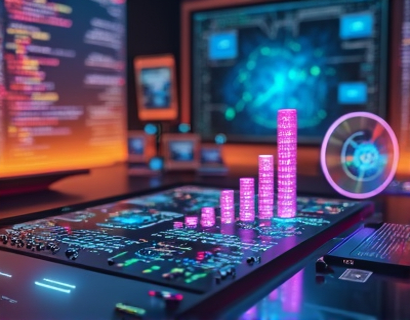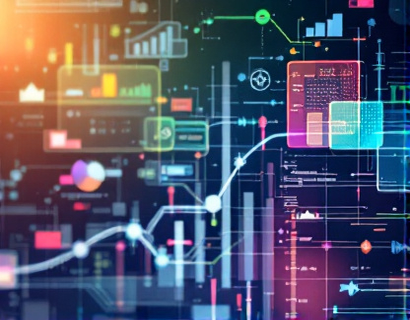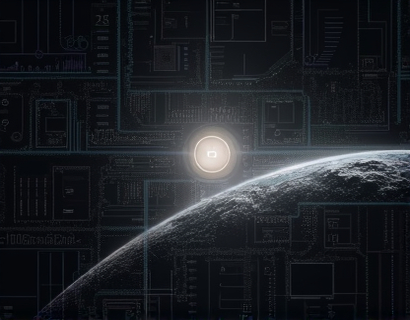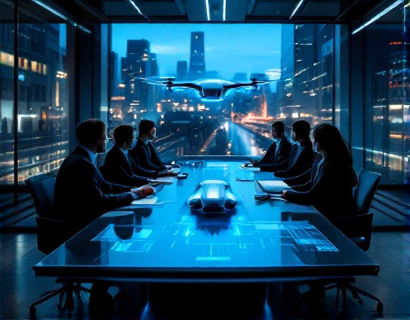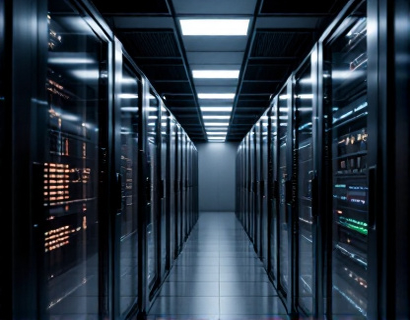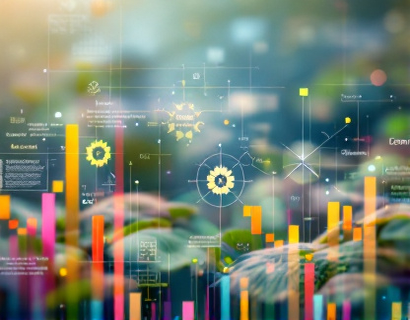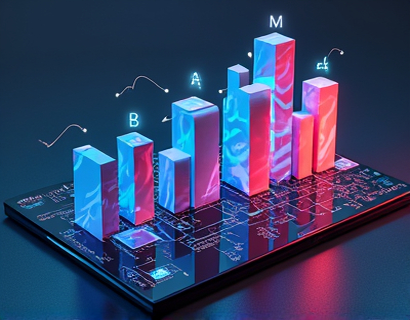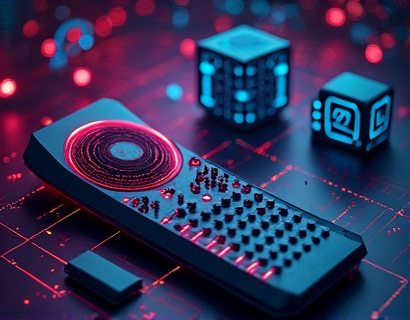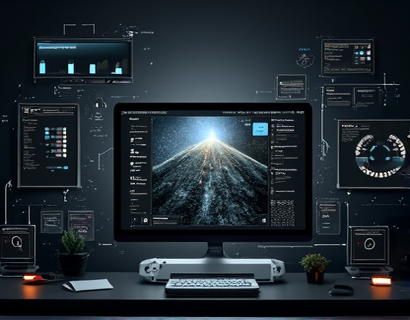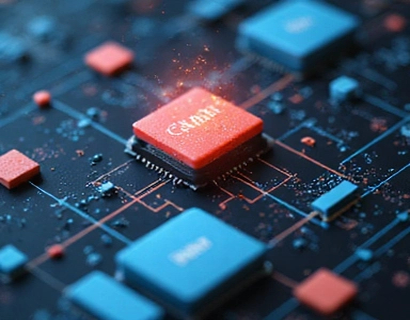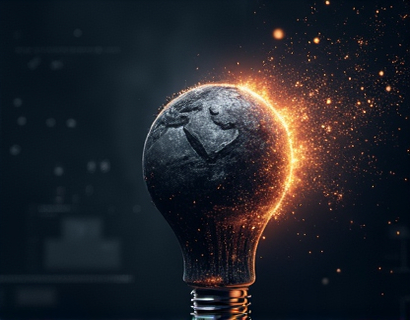Crypto-Powered AI Solutions for Decentralized Apps and Services
The intersection of cryptocurrency and artificial intelligence (AI) is giving rise to a new era of decentralized applications and services. This fusion is not just a technological curiosity but a transformative force that is set to redefine how we interact with digital platforms. For tech-savvy innovators and early adopters, understanding the potential of crypto-powered AI solutions is crucial. These solutions promise to deliver seamless, efficient, and user-friendly experiences, leveraging the strengths of both blockchain technology and machine learning.
Understanding Decentralized Applications
Decentralized applications, or dApps, are software applications that run on a blockchain or a decentralized network rather than on a central server. This design eliminates single points of failure and reduces the risk of censorship, making them inherently more resilient and secure. Unlike traditional applications, dApps are transparent, with all data and code being publicly accessible. This transparency fosters trust and accountability among users.
The decentralized nature of these applications is made possible by blockchain technology, which provides a distributed ledger for transactions and data storage. Smart contracts, self-executing contracts with the terms directly written into code, are a cornerstone of dApps. They automate and enforce the rules of the application, ensuring that all participants adhere to the agreed-upon terms without the need for intermediaries.
Role of Artificial Intelligence in Decentralized Apps
AI, with its ability to learn from data, recognize patterns, and make decisions with minimal human intervention, is a natural fit for enhancing dApps. When combined with blockchain, AI can offer advanced functionalities that were previously unimaginable. For instance, AI can be used to optimize the performance of smart contracts, improve user experience through personalized interactions, and enhance security by detecting and mitigating potential threats.
One of the key areas where AI shines in decentralized applications is in data analysis. Blockchain generates vast amounts of data, and AI algorithms can process this data to provide insights, predict trends, and automate decision-making processes. This synergy between AI and blockchain can lead to more intelligent, adaptive, and efficient dApps.
Enhancing User Experience with AI
User experience is a critical factor in the success of any application, and dApps are no exception. AI can significantly enhance the user experience by providing personalized interactions, intuitive interfaces, and proactive support. For example, AI-driven chatbots can offer real-time assistance, answering user queries and guiding them through complex processes. These chatbots can operate 24/7, ensuring that users receive immediate help whenever needed.
Personalization is another area where AI excels. By analyzing user behavior and preferences, AI can tailor the dApp's functionality to individual needs. This could mean recommending specific services, customizing the interface, or even adjusting the level of complexity based on the user's proficiency. Such personalization not only improves user satisfaction but also increases engagement and retention.
Security and Privacy Enhancements
Security and privacy are paramount concerns in the digital world, and the combination of AI and blockchain addresses these issues effectively. AI can be used to monitor network activity for unusual patterns that might indicate a security breach. Machine learning models can detect anomalies and alert administrators in real-time, allowing for swift action to be taken.
Moreover, AI can enhance privacy by implementing advanced encryption techniques and ensuring that user data is handled securely. Blockchain's inherent transparency can be balanced with AI-driven privacy solutions, such as zero-knowledge proofs, which allow for verification without revealing sensitive information. This ensures that users can benefit from the transparency of blockchain while maintaining their privacy.
Efficiency and Automation
Efficiency is a key advantage of decentralized applications powered by AI. Automation of routine tasks reduces the need for human intervention, lowering operational costs and increasing speed. For instance, AI can automate the verification process in financial dApps, ensuring that transactions are valid and compliant with regulations. This not only speeds up the process but also reduces the risk of errors.
In the realm of supply chain management, AI can optimize logistics by predicting demand, managing inventory, and streamlining delivery processes. When integrated with blockchain, this creates a transparent and tamper-proof system that enhances trust among all parties involved. The combination of AI and blockchain ensures that each step in the supply chain is recorded and verified, reducing fraud and improving efficiency.
Case Studies and Real-World Applications
Several projects are already demonstrating the potential of crypto-powered AI solutions in decentralized applications. One notable example is a decentralized finance (DeFi) platform that uses AI to optimize lending and borrowing processes. The AI algorithm analyzes market data and user behavior to determine the best loan terms, interest rates, and repayment schedules. This not only makes the process more efficient but also more fair and transparent.
Another example is a decentralized content creation platform where AI assists in content moderation and monetization. The AI system can automatically detect and remove inappropriate content, ensuring a safe and respectful environment for all users. Additionally, it can analyze content popularity and suggest optimal pricing strategies for creators, maximizing their earnings.
Challenges and Considerations
While the potential of crypto-powered AI solutions is vast, there are several challenges that need to be addressed. One of the primary concerns is scalability. Blockchain networks, especially those using proof-of-work consensus mechanisms, can struggle with high transaction volumes. However, the development of more efficient consensus algorithms and layer 2 solutions is addressing this issue.
Interoperability is another challenge. For decentralized applications to reach their full potential, they need to seamlessly integrate with other blockchain networks and traditional systems. Efforts are underway to develop standards and protocols that facilitate interoperability, ensuring that dApps can communicate and exchange data effectively.
Regulatory uncertainty is also a factor to consider. As the space is still evolving, regulations vary widely across different jurisdictions. Developers and users must stay informed about the legal landscape to ensure compliance and avoid potential pitfalls.
Future Outlook
The future of decentralized applications powered by AI looks promising. As technology continues to advance, we can expect to see more sophisticated and user-friendly dApps that leverage the strengths of both blockchain and AI. The convergence of these technologies is not just a trend but a fundamental shift in how we build and interact with digital systems.
Innovators and early adopters who embrace these crypto-powered AI solutions will be at the forefront of this revolution. By understanding and harnessing the potential of decentralized applications, they can create innovative solutions that transform industries and improve lives. The journey ahead is exciting, and the possibilities are endless.




